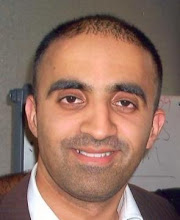Radical Islam is threatening to fill a “moral vacuum” in Britain as a result of a decline of Christian values, a senior Church of England bishop has said.
The Bishop of Rochester, the Right Rev Dr Michael Nazir-Ali, claims that the Church dissolved its influence over the country’s morals during the social and sexual revolution of the 1960s. He said that the waning influence of Christianity had created a lack of principles that was allowing radical Islam to push its “comprehensive” claims.
Mohammed Shafiq, of the Muslim youth organisation the Ramadhan Foundation, criticised the Bishop, saying that there was no evidence that the vacuum left by Christianity was being filled by extremists; it was being filled by secularists and an obsession with celebrity, fame and money, he said.
Dr Nazir-Ali said in his article for the political magazine Standpoint that Christianity had brought together a “rabble of mutually hostile tribes, fiefdoms and kingdoms” into a nation conscious of its identity and able to make an impact on the world.
He quoted an academic who blamed the 1960s cultural revolution for bringing Christianity’s role in society to an abrupt end. It was said that, instead of resisting the social and sexual revolution, church leaders had capitulated. The Bishop said: “It is a situation which has created the moral and spiritual vacuum in which we find ourselves. Whilst the Christian consensus was dissolved, nothing else, except perhaps endless self-indulgence, was put in its place.”
Marxism had been shown to be a “nonsense”, he added. “We are now, however, confronted by another equally serious ideology, that of radical Islamism, which also claims to be comprehensive in scope. It remains the case, however, that many of the beliefs and values which we need to deal with the present situation are rooted in the Judaeo-Christian tradition.”
Earlier this year the Bishop argued in a Sunday newspaper that Islamic extremists were creating “no-go areas” for non-Muslims in Britain, over which he received death threats. Last weekend he was quoted as claiming that the Church was not doing enough to convert Muslims to Christianity.
In his Standpoint article he said: “The question is not ‘should faith have a role in public life?’ — but what kind of role? Every temptation to theocracy, on every side, must be renounced. There is no place for coercion where the relationship of religion to the State is concerned.”Government would have to be more open to religious concerns and to make room for religious conscience, the Bishop said.
“The integrity and autonomy of public authority and of the law will also have to be recognised and it would be best if religious law in its application was left to the communities. Public law should, however, continue to provide overarching protection for all.”
Mr Shafiq countered the Bishop’s argument on extremism, saying: “Another day and another attack on Islam and Muslims by Mr Nazir-Ali.
“Everything this man says is based on fiction and promoting intolerance and fear among communities.
“Islam is on the rise because people recognise and are inspired by the trueness of our faith, whilst recognising that we live in a majority Christian country. We all have a duty to work together to build cohesive communities and not establish division,” Mr Shafiq added.
Subscribe to:
Post Comments (Atom)


No comments:
Post a Comment